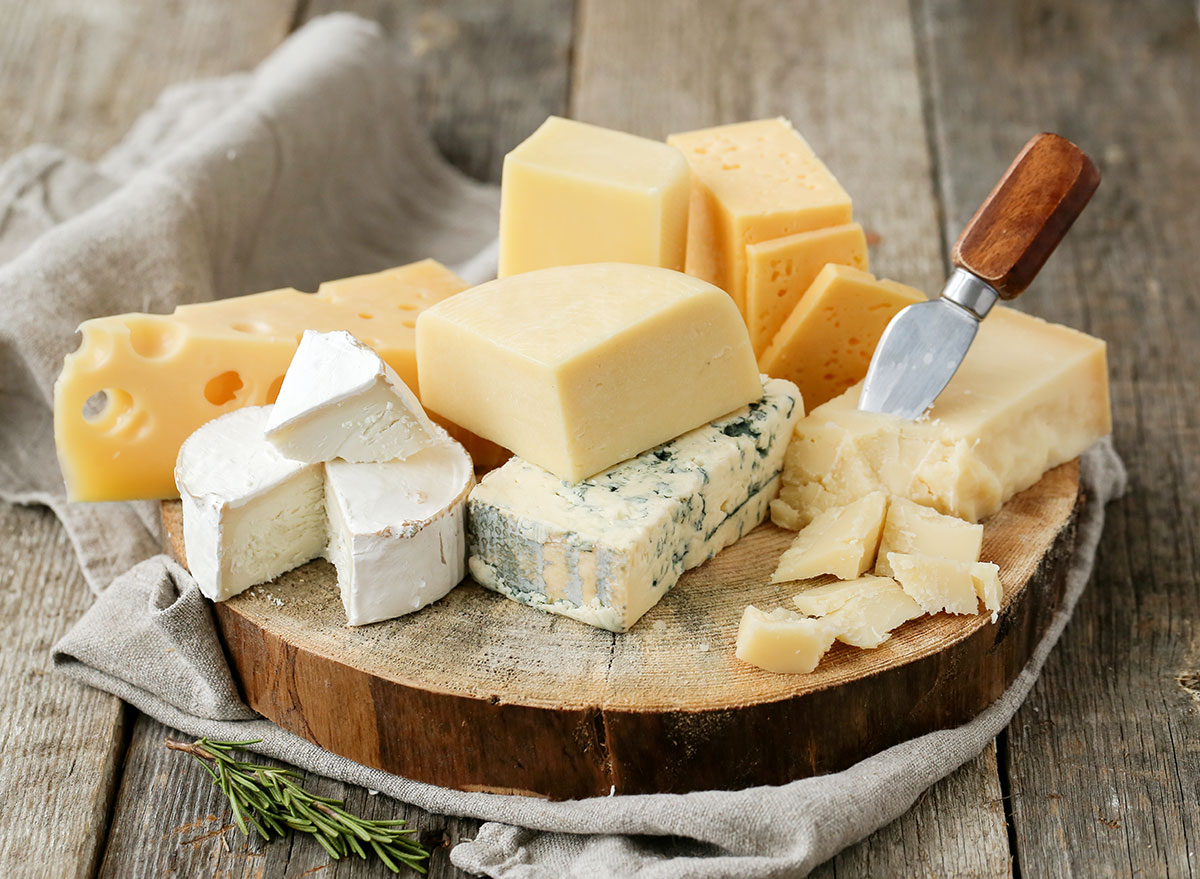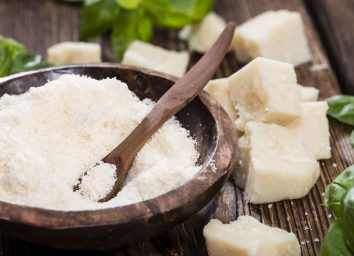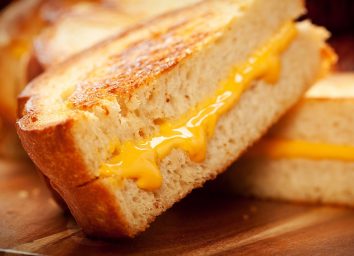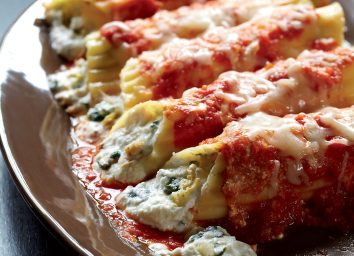Is Cheese Actually Bad for You?

It's safe to say there are plenty of people out there who simply love cheese, and yet there's a lot of confusion about whether cheese is healthy for you to eat on a regular basis or not. Whether you like it cubed, sliced alongside an assortment of meats in a charcuterie board, or melted in a soup bowl with a bag of tortilla chips on hand, Sydney Greene MS, RDN, lends insight on which types of cheese are healthier than others, as well as the right portion sizes you should follow.
So, is cheese bad for you, or is it OK to eat as often as most would like to? We uncovered the truth, once and for all.
Is cheese healthy for you?
"Yes! Cheese is a great source of calcium, vitamin A, healthy fats, and protein," says Greene. "In general, you want to consume organic cheeses from grass-fed cows. Although these cheeses tend to be more expensive than the conventional [variety], the elevated nutrient profile and lack of hormone, antibiotics, [and] food colorings make it worth it."
As is the case with any food, you don't want to overindulge in cheese because it is high in fat and calories. One serving of cheese is one ounce or one slice. Here's how Greene says you can measure one serving of cheese on your own at home:
1 standard serving of cheese = 1 oz or the equivalent of 2 dice.
She recommends consuming dairy a maximum of 1-2 times per day and to select organic, full-fat varieties.
"Cheese makes an excellent source of fat and protein for a snack. Pair with one piece of fruit or cut-up veggies for the perfect pair of protein and fiber," she says. "An organic shaved cheese like pecorino romano is a great way to add flavor and healthy fat—which will help absorb all the vitamins and minerals from veggies—to a salad."
Which types of cheeses are the healthiest for you?
Greene says the following types of cheese are among the healthiest options.
- Ricotta: 1/2 cup serving contains 43 percent of the recommended daily allowance of vitamin B12, which is critical for energy, focus, and mood stability.
- Mozzarella: 1 oz serving contains the same amount of protein and fat as one large egg, which is great news if you're on the go and couldn't make your morning eggs. Grab one mozzarella stick or ball and pair with 10 cherry tomatoes for a light breakfast.
- Swiss: 1 slice contains 15 percent of the recommended daily allowance of zinc, a mineral that is critical for mood stability, immune function, and memory. It is also lower in lactose than other cheeses.
Which types of cheese are not as good for you? Why?
Think of any cheese that's heavily processed, and there's a good chance two specific types come to mind.
"Most American cheese [selections] on the market are not even real cheese," says Greene. "You may notice that American cheese is labeled, 'product or cheese food.' This is because when a [specific] food contains a high amount of additives, making up more than 51 percent of the product, it cannot be named the whole food."
Aside from Kraft Singles, which, according to an article from the New York Times, were created in 1916 with the intentions of extending its shelf-life to prevent premature spoilage, another fake cheese is Velveeta. Anyone else thinks this cheese resembles a yellowish-orange brick or miniature cinder block?
"True cheese does not need artificial additives like the calcium phosphate, sodium phosphate, and sorbic acid found in Velveeta," says Greene.
According to A Consumer's Dictionary of Food Additives, calcium phosphates are incorporated into foods to improve firmness. They're also used in various fertilizers. Stick to real cheese, and you dodge peculiar additives such as this one.
Who should stay away from cheese altogether?
"If you have been diagnosed as lactose intolerant by your physician, you should absolutely stay away from cheese. Though you may have it and 'just suffer' through the consequences after, this is a big no-no, as each bite of lactose can trigger an inflammatory cascade," says Greene.
Essentially, even if gastrointestinal distress quells after a few hours of eating it, the inflammatory response from eating it can linger for days, says Greene.
"It can be the reason those last 5 pounds won't budge, the reason you feel sluggish, the reason your sleep is poor, or the cause of frustrating skin issues," she adds.
While there is existing research on acne flareups and dairy consumption, Greene says the results are mixed. However, she says that several studies show that consuming low-fat dairy products in excess are associated with the development of acne.
"Taking this into account, conventional low-fat dairy should be avoided. When the fat is skimmed from milk to make low-fat cheese, the ratio of naturally-occurring hormones is skewed, which contributes to acne formation," she explains.
Are there any other bad cheeses to stay clear of?
"Skip the already shredded or grated cheese in the supermarket. Producers add cellulose, a plant fiber (basically pulp from wood) to these products to prevent caking," says Greene. "This means that in addition to cheese, you're also adding a dose of wood to your salad. Save the GI distress and get more bang for your buck by shredding and grating your own cheese."








